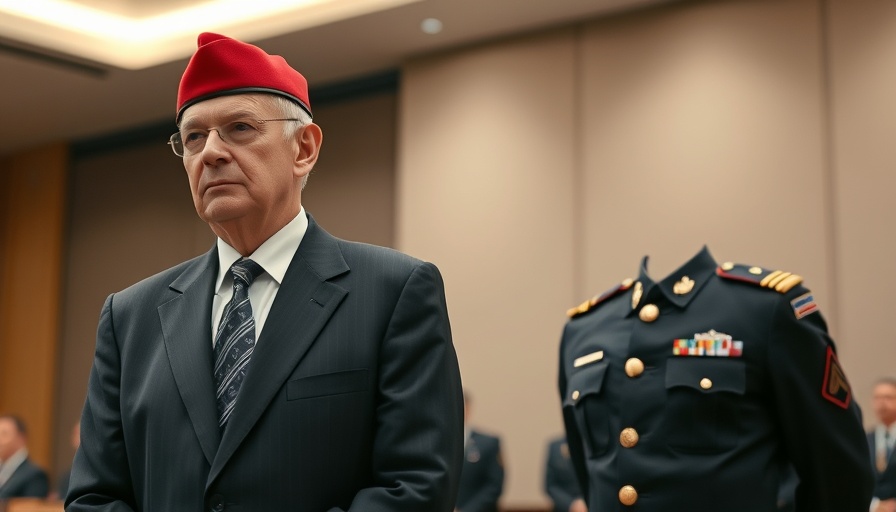
Defining a New Era for Military Values
In a ceremony resonating with traditional American values, President Trump addressed graduates at West Point, marking significant changes in military policy and national identity. Cadets listened attentively as he asserted they were stepping into a 'golden age' shaped by his administration’s commitment to rebuilding the military and purging what he termed 'absurd ideological experiments.' This rhetoric suggests a strong shift towards prioritizing traditional military values over socio-political considerations.
Emphasis on National Sovereignty
During his address, Trump stressed that the era of 'nation-building crusades' in foreign lands which 'wanted nothing to do with us' was over. This signals a new focus on American interests first—a stance indicative of his broader foreign policy. The call for the military to protect American borders reflects a growing sentiment across various sectors of society that favors internal security and national sovereignty over international commitments.
Culture of Meritocracy Over Diversity
Trump's remarks included a controversial commitment to merit-based hiring, positioning it against the backdrop of diversity, equity, and inclusion initiatives. This statement sparked applause among certain attendees, revealing a distinct divide in public opinion. Critics argue that removing these programs could exacerbate systemic inequalities within the military. Trump's assertion that hiring based on merit is crucial for national strength invites ongoing debates about the balance between representation and ability in the armed forces.
Understanding Historical Context
Trump’s rhetoric taps into a unique historical mindset where military strength is fused with national identity. Since the post-Vietnam era, the U.S. military has grappled with its role on the world stage. This emphasis on closing ranks against perceived external threats aims to restore a sense of pride and purpose among military personnel.
Counterarguments and Diverse Perspectives
The bifurcated response to Trump's policies highlights the ongoing culture war in the United States. Supporters view his stance as a necessary reassertion of American values, while detractors see it as a regression into exclusionary practices. Emphasizing meritocracy at the expense of diversity raises questions about how the military can maintain efficacy and represent the society it protects.
Implications for Future Military Leadership
With lawmakers and citizens observing this military renaissance, the implications for leadership within the armed forces are profound. Changes to recruitment and training processes to reflect these values will shape the future composition of the U.S. military. The potential shifting away from previously embraced inclusive policies could redefine the ideological fabric of our military in the years to come.
Actionable Insights for Policy Awareness
For parents, policymakers, and citizens at large, understanding these shifts in military focus is crucial. It underscores the importance of active engagement with representation and the values instilled in future leaders of the armed forces. As military cadets adapt to this changing environment, how can we foster an equitable yet effective military framework that reflects a broad array of American experiences?
As these changes unfold, it’s vital to advocate for dialogues surrounding fairness, equity, and representation in our military. Supporting initiatives that encourage both merit and diversity can create leaders who are prepared to face the complexities of modern warfare and diplomacy.
 Add Row
Add Row  Add
Add 




 Add Row
Add Row  Add
Add 

Write A Comment